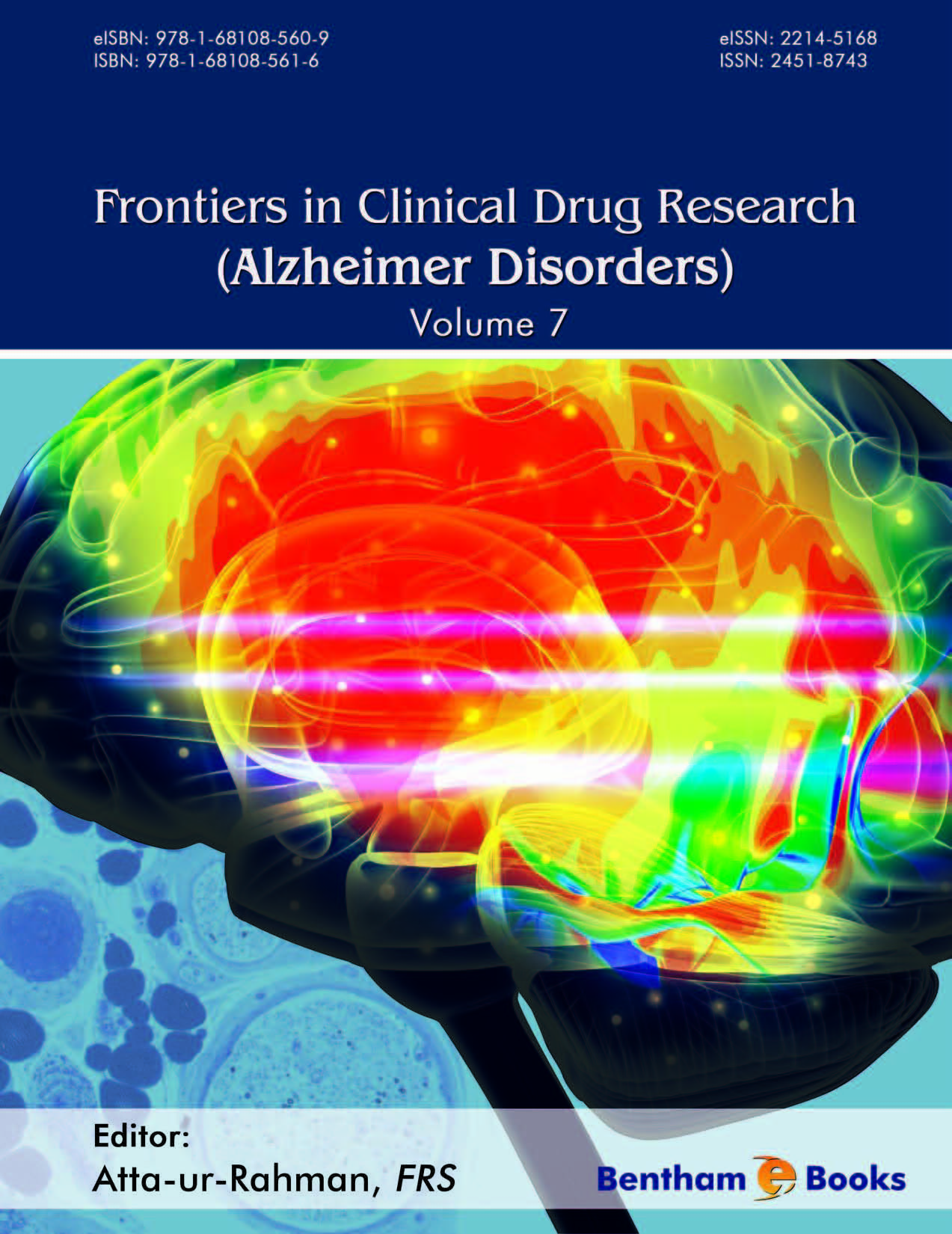Preface
The book series, “Frontiers in Clinical Drug Research – Alzheimer Disorders” presents the important recent advancements in the form of cutting edge reviews written by experts. Volume 7 of this eBook series is a compilation of seven well written chapters contributed by prominent researchers in the field. They include articles on brain stimulation, ASS234 – an Anti-Alzheimer agent, Alzheimer's drug discovery research, proteasome, Ca2+/cAMP signalling interaction, non-pharmacological therapies, drug development and other related areas.
Chapter 1 by Lavano et al., discusses the role of deep brain stimulation in the treatment of Alzheimer's disease (AD). In chapter 2, Romero et al., summarize the neuroprotective effects of ASS234 in counteracting several steps in the pathological processes of AD. Liu et al. in chapter 3 focus on recent advances in Alzheimer's drug discovery research. In Chapter 4, Ding and Zhu highlight the basic information and updates on the proteasome system and related cellular complexes.
In chapter 5, Bergantin discusses the fundamental concepts and current therapies to treat AD, including therapeutic outcomes resulting from the Ca2+/cAMP signalling interaction. Chapter 6 by Gottlieb et al., emphasizes the role of different non-pharmacological therapies administered by a multi-professional health team to maintain the acceptable quality of life for the elderly with AD. The last chapter by Sahu et al., discusses the scope and limitations of some currently marketed drugs in the management of AD.
The 7th volume of this book series represents the results of a huge amount of work by many eminent researchers. I am grateful to the authors for their excellent contributions. I would also like to express my gratitude to the editorial staff of Bentham Science Publishers, particularly Mr. Mahmood Alam (Director Publication), Mr. Shehzad Naqvi (Editorial Manager Publications) and Ms. Fariya Zulfiqar (Manager Publications) for their hard work and persistent efforts.
Atta-ur-Rahman, FRS
Honorary Life Fellow
Kings College
University of Cambridge
Cambridge
UK

